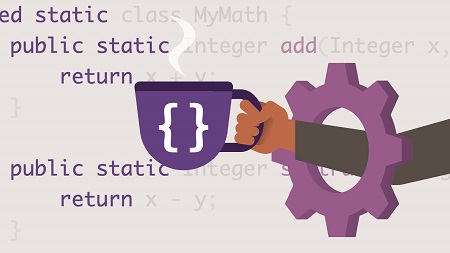
English | MP4 | AVC 1280×720 | AAC 48KHz 2ch | 2h 23m | 465 MB
Functional programming is a way of organizing code that makes applications more scalable and maintainable. By utilizing the core concepts of immutability, data-function separation, and first-class functions, programmers can write better code. In this course, learn about the functional programming paradigm and see how to take advantage of it with Java and object-oriented programming. Apply the learnings to real-world code and examine some of the more advanced and misunderstood concepts—such as partial-application, recursion, and composition—to become skilled in developing flexible code.
Table of Contents
1 Functional programming A new way to organize code
2 What you should know
3 Why use functional programming
4 What is declarative programming
5 Immutability in functional programming
6 Functional purity
7 First-class functions
8 The function interface
9 Lambda expressions
10 BiFunctions and beyond
11 Functions as data
12 Passing functions as arguments
13 Returning functions
14 Closure
15 Higher-order functions
16 Map in Java
17 Filter in Java
18 Reduce in Java
19 Collect in Java
20 Challenge Stream exercises
21 Solution Stream exercises
22 Combine list functions
23 Parallel streams
24 Challenge Average salary calculator
25 Solution Average salary calculator
26 Advanced functional concepts
27 Partial application and currying
28 Recursion
29 Composition
Resolve the captcha to access the links!